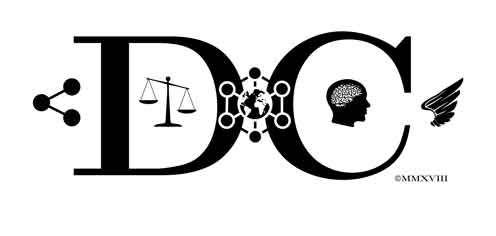There’s no more pretending that social media platforms don’t have power over our civic world- it’s time we educate about using them responsibly.
After years of educators and researchers attempting to point out the problem of not engaging with social media in the classroom or being able to properly engage with its impact on daily life, we’re seeing the warning signs of what can happen to the world if we don’t robustly approach these issues now.
Demonstrations of misplaced power, confusion over facts, and inflamed emotional responses leading to violence have taken real physical form. This was all frustratingly predictable and not simply weeks or months in advance but could be seen coming from a long way off. What comes next, whether we decide to make the necessary changes and deal with the challenges head on, or continue to hide our heads in the sand, is now up to us.
Over a decade ago, as I began looking for sites to conduct my research into digital civics and social media, I struggled to find willing participants in the education sector. There’s a variety of understandable reasons for this- schools are anxious to keep students safe and protected from unknown harms online- sexual predation, cyber-bullying, and inappropriate content looms large in the minds of teachers, principals, school boards, and parents, as does the threat of some litigious action, should something go awry. Worse still, is the threat of career destruction at the hands of rumour or public excoriation, whose reach is enhanced by those same digital technologies, if blame should surface for some mistake or incident that occurs while teaching about the online realm.
Education professionals are in an extremely challenging and highly complex position.
To cope, some schools banned these technologies altogether, others crafted policies that drew a line between the online and offline activities of students: that dismissed students’ online activities from part of the school’s responsibility. And while this may have protected schools, it has not protected students. Nor has it helped them understand or formulate tools for some of the largest civic challenges facing their lifetime: how their changing technological landscape will shape their social and civic existence.
Society, rightly, wants a place that is safe and protected to teach its children, but a bubble that pretends that the harms of the real world don’t exist not only fails to prepare students for reality, it can’t even keep them safe in the moment.
The problem with havens of innocence, is that the snake is already inside the garden.
It’s not that “stranger danger” doesn’t happen, but rather that, more frequently, young people come to harm at the hands of people they are close to. A 2012 study by the NSPCC discussed how students often suffer at the hands of people they know: their peers, and the people in their own classes at school.
Similarly, the risks of personal harm, exposure to misinformation, and abuse of power often come from those we know, sometimes even our trusted inner circle: not always because they intend us harm, but rather, because they themselves did not understand or appreciate the situation. A word from a trusted friend is often worth more to us than a word from someone we don’t know- even if the friend is less qualified, experienced, or knowledgeable than a scientific expert.
If we don’t teach students how to engage with social media platforms in guided and educational circumstances- if we don’t allow schools to engage with them so that they can teach citizens the realities of 21st century life- then we cannot act surprised when there are serious consequences.
In other words, the digital world is not Vegas. What happens online does not stay there, it can slam into our offline life with astounding force. We know this because we have watched many young people suffer the real physical consequences in their offline lives after interacting in the online realm: a careless photo becomes a job loss, a cruel posted comment becomes a lost friendship, and a gang of digital bullying becomes a suicide.
There is no excuse to be caught unaware when civic aggression on a computer screen becomes a violent act against democratic traditions.
There can be no better teacher to help people understand the serious ramifications, social and political, of digital technologies, than their own real, lived experiences. Cut those from the classroom, and you have invited a world where knowledge is theoretical, but not understood or applied. Where civics is a class for a grade, but not a lived, and living, participatory creation.
The longer we choose to hide from the potentials of our technologies, instead of to prepare for them, the more risk we take with the future of our civic society. This is no time to gamble with democracy.
It’s well past time to let teachers do their job and teach students how to engage with the realities of 21stcentury life. Yes, it will be frightening, and fraught with risk. But the alternative, is terrifying and leads to devastating consequences, the likes of which we have only just begun to see.
Image by Gerd Altmann from Pixabay


